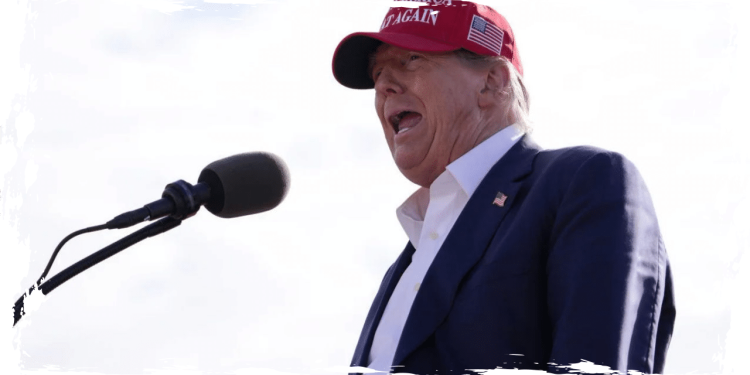The campaign of former President Trump is embarking on a mission to tackle a persistent challenge: mail-in and early voting.
The Republican National Committee, in collaboration with Trump’s outreach team, has introduced a new campaign called “Swamp the Vote” to address voters’ concerns about the reliability of unconventional voting methods. This initiative aims to alleviate anxieties that were previously fueled by the candidate himself.
In a surprising reversal, President Trump has now shown support for processes that he had previously expressed disdain towards. This change in stance is quite remarkable.
During an April 2020 news briefing in the early stages of the coronavirus pandemic, the then-president expressed his belief that many people cheat with mail-in voting. He cautioned reporters that the mail-in process could lead to various negative outcomes, stating that “all sorts of bad things can happen.”
In 2020, to protect people from the disease, states promoted alternative voting methods, such as mail-in ballots. However, Trump advised his supporters to disregard the advice and cast their votes in person at the polls that November.
According to Trump, the voting process should not involve mail-in voting. Instead, he believes that individuals should physically go to a booth and proudly display themselves while casting their vote.
In a speech on June 23, he boldly declared that this election would be the most corrupt in the history of the United States. This statement proved to be a foreshadowing of his later refusal to accept the election results, ultimately leading to the violent attack on the Capitol on January 6, 2021.
Critics, mostly conservatives, have long targeted mail-in and early voting options, alleging that they could facilitate voter fraud. However, there is no evidence to suggest that these options have had a significant impact on election outcomes.
According to a poll conducted by Pew in February, 57% of the participants believe that voters should have the option to vote by mail. Additionally, three out of four respondents expressed support for early in-person voting periods lasting at least two weeks prior to the traditional election day.










